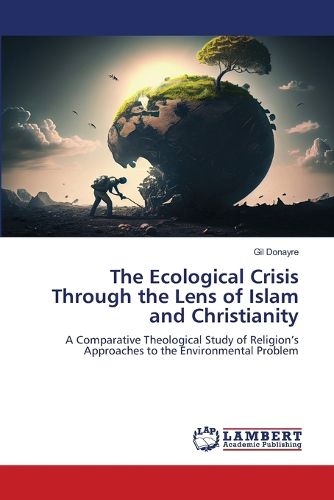Readings Newsletter
Become a Readings Member to make your shopping experience even easier.
Sign in or sign up for free!
You’re not far away from qualifying for FREE standard shipping within Australia
You’ve qualified for FREE standard shipping within Australia
The cart is loading…






Employing the method of comparative theology, this doctoral thesis examines the ecological crisis through Islamic and Christian perspectives. With the aim of gaining comprehensive knowledge from the two different traditions, the dissertation presents the analysis of four Muslim authors (Nasr, Khalid, Dien, OEzdemir) followed by an exposition of their Christian counterparts (Berry, Boff, Bartholomew, Vogt). After which, the thesis pairs two authors, one Muslim and the other Christian, to compare and contrast the two traditions' understanding of four thematic fields crucial to the environmental crisis discussion: cosmology, economy-society, anthropology, ethics. This allows the study to highlight points of convergence and divergence in the way Muslims and Christians perceive the various dimensions of the issue. In placing the two perspectives side by side, the thesis wishes not to pass judgment as to whose tradition is correct but rather to present the arguments of both sides in order to broaden one's knowledge of the other. With this increased understanding, the study then appropriates insights drawn from the engagement with inter-religious learning.
$9.00 standard shipping within Australia
FREE standard shipping within Australia for orders over $100.00
Express & International shipping calculated at checkout
Employing the method of comparative theology, this doctoral thesis examines the ecological crisis through Islamic and Christian perspectives. With the aim of gaining comprehensive knowledge from the two different traditions, the dissertation presents the analysis of four Muslim authors (Nasr, Khalid, Dien, OEzdemir) followed by an exposition of their Christian counterparts (Berry, Boff, Bartholomew, Vogt). After which, the thesis pairs two authors, one Muslim and the other Christian, to compare and contrast the two traditions' understanding of four thematic fields crucial to the environmental crisis discussion: cosmology, economy-society, anthropology, ethics. This allows the study to highlight points of convergence and divergence in the way Muslims and Christians perceive the various dimensions of the issue. In placing the two perspectives side by side, the thesis wishes not to pass judgment as to whose tradition is correct but rather to present the arguments of both sides in order to broaden one's knowledge of the other. With this increased understanding, the study then appropriates insights drawn from the engagement with inter-religious learning.